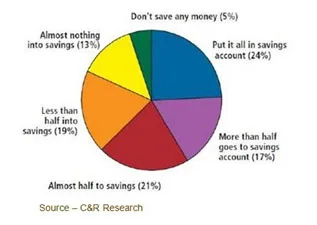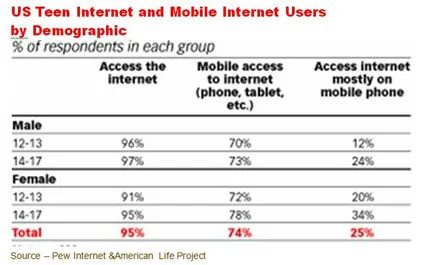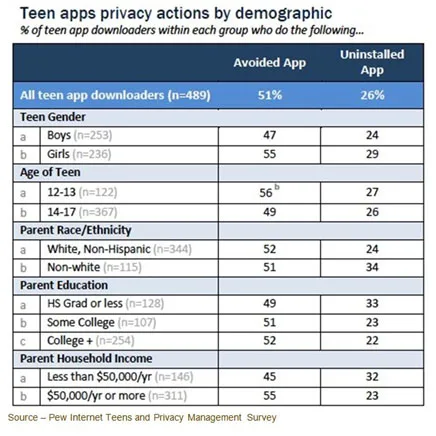Gen Z is More Prepared, More Savvy than You Think

Today’s teens are the ones who are in line to take over business, the world.
They’re the first generation to not know life before the Internet, the Web, apps, smartphones, constantly being connected and being able to tap into any news, information, entertainment anywhere in the world.
Obviously, they’re screwed up.
Except they’re not!
It’s important to know and understand them because (and let’s be crass about it) they are the big customers of tomorrow and, according to world census figures, they’re a big market:
- Silent Generation (69+) – 10.5 percent of the population
- Baby Boomers (50-68) – 23.6 percent
- Gen X (38-49) – 15.4 percent
- Millennials (20-37) – 24.5 percent
- Gen Z (19 and under) – 25.9 percent
Gen Z is rapidly coming into its own in terms of influence, consumption and spending power so the more you understand them, the better chance you have to be the product/service they want to adopt, support, use and recommend.
Wiki’s co-founder, Jimmy Wales noted, “It is clear that this generation is using technology in a way that is smarter, more involved and beneficial to their future. We can learn a lot from how this unbounded, younger generation interacts with technology and are able to quickly adapt to this rapidly changing media landscape.”
Strong Understanding
Compared to the generation before them, Gen Zers appear to have a good grasp of the world they’re going to inherit. Perhaps it is because Internet access has made it easy for them to judge “facts” for themselves.
According to a research report by OfCom:
- 60 percent want their jobs to impact the world
- 26 percent currently volunteer
- 76 percent are concerned about our impact on the planet
- 76 percent would like to turn their hobbies into fulltime jobs
- 72 percent want to start their own businesses someday

Parents of teens and Millennials got involved with the Internet when content was mostly text; but for teens, it is just one giant TV/new/information/radio channel they can tap into with any device that’s at hand – when they want, where they want, how they want.
According to a research report by Marko, there are real differences between Gen Z and Millennials:
Since they were almost literally born connected the Internet, Gen Zers’ Internet use is high, regardless of the device. But as a clear indication of what tomorrow holds for device, app producers and online/onsite retailers, a growing volume of their access is being done with mobile devices.

Since they are rapidly becoming a major market, Harold Howard said, “An explanation is probably long overdue.”
According to Pew Research, males tended to use the Internet more than females, and rural teens were more likely to access the iNet than urban teens (99% vs. 94%). However, females were slightly more likely to use mobile access than males (25% vs. 20%).
Key findings were:
- 78 percent of teens have a cell phone, almost half (47%) smartphones.
- 23 percent of teens have a tablet computer
- 95 percent of teens use the internet
- 93 percent of teens have a computer or have access to one at home
- Seven in ten (71%) teens with computers access say it’s shared with others
Sharing But…
Being online almost every waking moment, teens are sharing more information about themselves on social media sites than in the past.
However they are also taking more aggressive steps to manage their privacy and are concerned about third-parties (businesses, advertisers) accessing their information.
Or, as Harold Howard noted, “It’s not as bad as it looks.”
Pew Research found:
- 91 percent post a photo of themselves
- 71 percent post their school name
- 71 percent post the city or town where they live
- 53 percent post their email address
- 20 percent post their cell phone number
- 60 percent of teen Facebook users set their Facebook profiles to private (friends only)
- 56 percent say it’s “not difficult at all” to manage the privacy controls on Facebook
- 33 percent say it’s “not too difficult.”
- 8 percent say that managing their privacy controls is “somewhat difficult”
Managing activities include:
- 59 percent have deleted or edited their posts
- 53 percent have deleted comments on their profile/account
- 45 percent have removed their names from photos
- 31 percent have deleted or deactivated their profile or account
- 19 percent have posted items they later regretted sharing
Them, Not Me
A study by Camp Mobile found that 81 percent of teens felt their peers shared too much information.
Teens have embraced app downloading in a major way (especially games) however, a growing number uninstall or avoid apps because of security/privacy concerns.

Girls have become especially sensitive to location information monitoring and have disabled the features on their smartphones and apps.
A recent research report found:
- 58 percent of teens have downloaded apps to their phones, tablets
- 51 percent have avoided apps due to privacy concerns
- 26 percent have uninstalled an app because they found out it was collecting personal information
- 46 percent have turned off location tracking features on their phone or app
- Girls are more likely than boys to disable location tracking (59% vs. 37%)
eMarketer estimates 97 percent of Gen Zers will use the Internet this year and that regular social media activity will increase to 86.5 percent. A growing number will keep a closer eye on how much they reveal to the world, including selfies.
Unlike Millennials, Gen Zers prefer hangouts like Snapchat and Whisper to Facebook and Twitter. They’re very visually oriented and, having been immersed in it since the beginning, are very tech-savvy.
They’ve grown up in the DIY (do-it-yourself) environment, focus on how things are made, seek peer recommendations/affirmation and are usually early adopters of products that are practical yet cool.
Comparing Gen Zers to earlier generations, it’s a lot like Harold Howard said, “You’re going to be able to do a lot of things the other guys aren’t.”
Stiles gave sellers some sound advice, “Do the right thing.”
# # #
